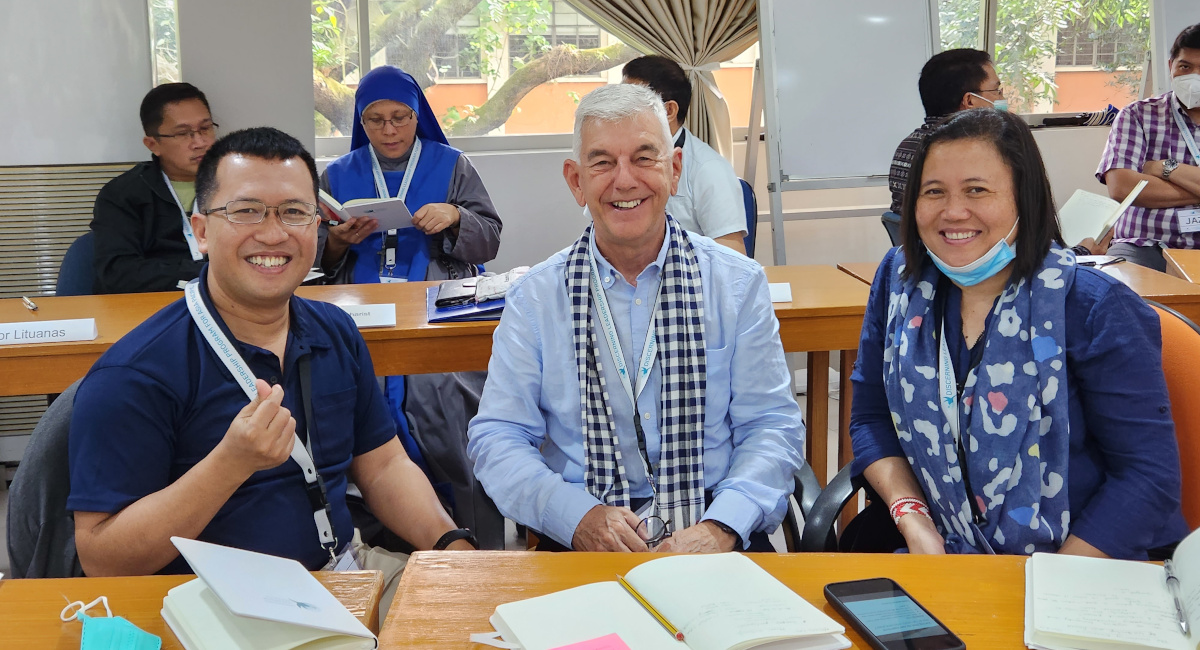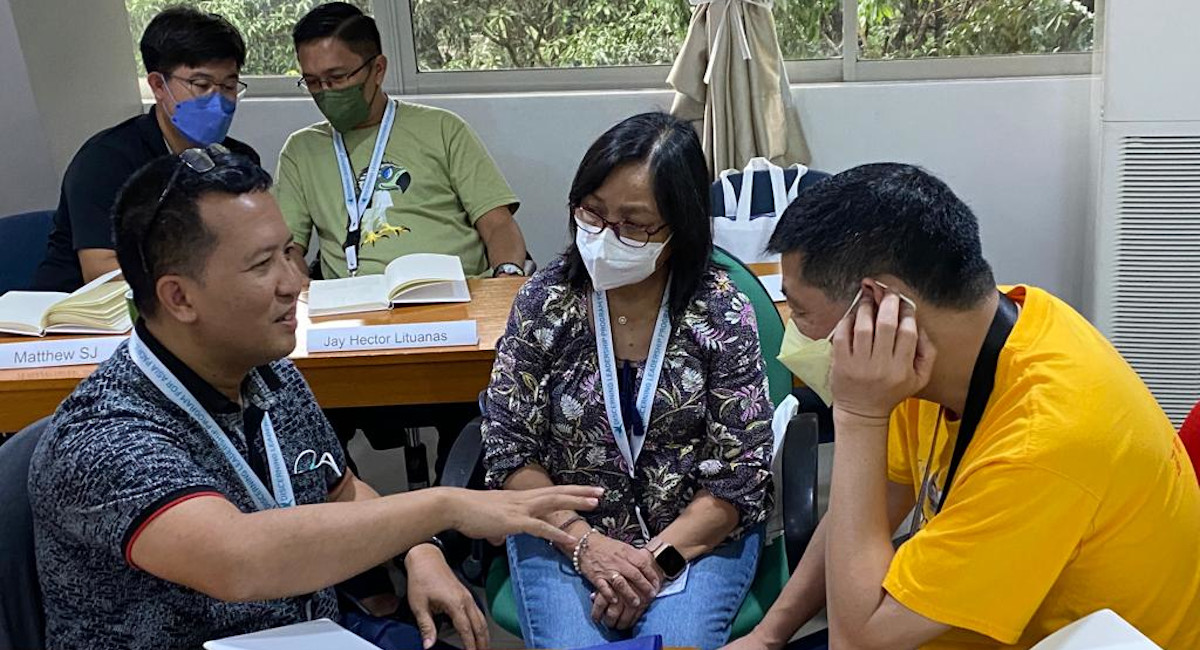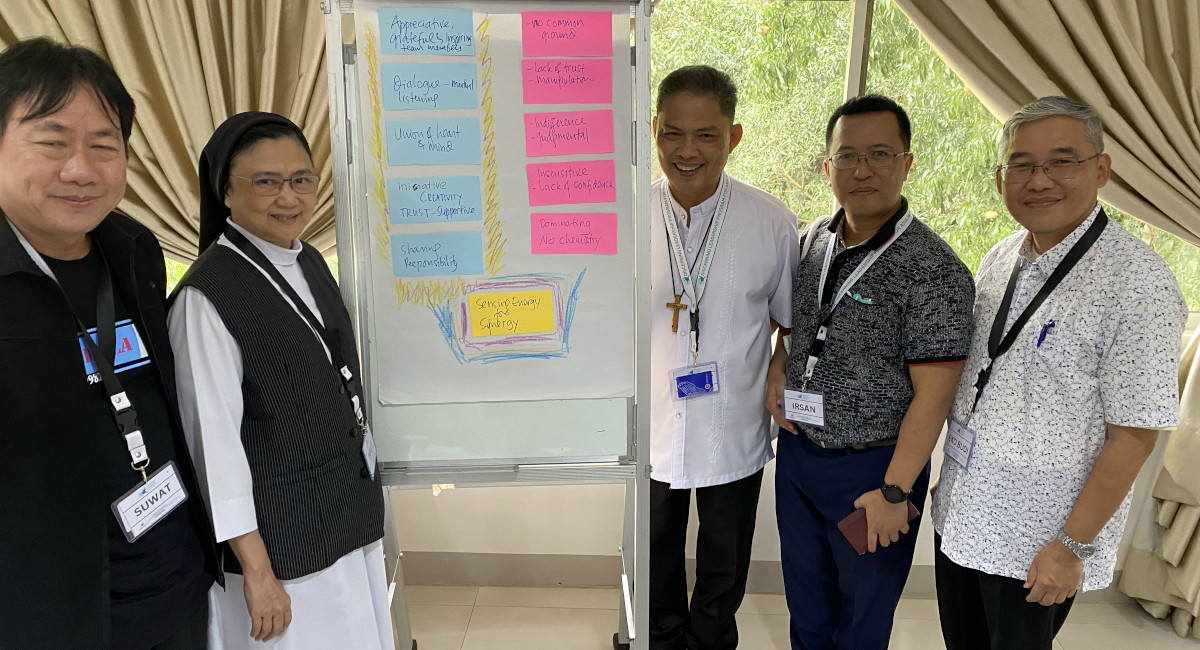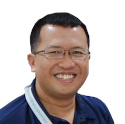 The Discerning Leadership Program (DLP) taught me about synodality, discernment, effective communication, and conflict resolution in leading and managing an organisation.
The Discerning Leadership Program (DLP) taught me about synodality, discernment, effective communication, and conflict resolution in leading and managing an organisation.
The programme held at the Ateneo de Manila University from 5 to 11 January began with our personal context and the church in a volatile, uncertain, complex, and ambiguous (VUCA) time. As Pope Francis said: “A time of crisis is a time of the Spirit.” We can find meaning in times of darkness, vulnerability, contradiction, and loss when we face our crisis with faith, courage, and humility.
Bishop Pablo Virgilio David, in his keynote speech, challenged us to become a transforming leader through synodality, to go from being an inward-looking church to becoming a missionary church. He encouraged us to embrace synodality as a way of nurturing the life of communion, participation, and mission through walking humbly with God and the people of God.
Of all the sessions, I enjoyed the discernment and exercise of power in our life as a leader; understanding polarities, especially in recognising and embracing the opposites; fostering life in groups and team, in particular, how to be attuned to the dynamic of a team and to sense a group’s energy for synergy; skillful communication on how to nurture space for generative listening and speaking; and conflict resolution.
 A touching insight came from Fr Ben Nebres SJ: “Sometimes how good a leader you can be depends on how much pain you can take.” Fr John Che-chon Chong SJ remarked that “Leadership many times entails some vulnerabilities.”
A touching insight came from Fr Ben Nebres SJ: “Sometimes how good a leader you can be depends on how much pain you can take.” Fr John Che-chon Chong SJ remarked that “Leadership many times entails some vulnerabilities.”
My leadership experience has been a journey of facing pain and uncertainty. But the more willing I am to learn from my vulnerability, the more humble I become as a leader. In our small group sharing, I was touched by what others shared on how we need to put our suffering in the perspective of the Easter mystery–suffering, death, and resurrection. Whenever there is suffering, there will be the joy of resurrection.
I valued the skills of journaling; practising the examen; Emmaus companion sharing; attending to integral perspective of four quadrants–interior, exterior, culture, and system; learning the distinction between reactive and creative leadership, and the difference between technical and adaptive challenges; how to navigate polarities and to embrace the opposites, how to discern our exercise of power, how to enlarge the place of my tent by understanding and managing conflicts, and how to develop synodal leadership in practice; discernment in common; and how to nurture conscious skillful communication through three practices–the ladder of inference, the four parts of speech, and the four level of listening.
 I was thankful to each member of my small group, whose sharing touched and inspired me. I was able to experience how it is to give space for deep listening (factual, empathic, and generative), starting with an open mind, to an open heart, and to an open will. As I listened attentively to them, I felt God’s compassion leading me to a journey of conversion.
I was thankful to each member of my small group, whose sharing touched and inspired me. I was able to experience how it is to give space for deep listening (factual, empathic, and generative), starting with an open mind, to an open heart, and to an open will. As I listened attentively to them, I felt God’s compassion leading me to a journey of conversion.
DLP helped me to I develop an attitude of embracing the squilibrio in our VUCA time and to have the courage to be vulnerable. I have become more willing to give more space for deep listening in developing effective communication and transformation. An attentiveness in navigating the wind and sensing energy for synergy is important in fostering life in an institution. I was touched by how synodality means walking humbly with God and others through the life of communion, participation, and mission. Learning leadership through suffering as a leader was also quite touching for me during the programme.
The small group sharing was beneficial in helping us to make sense and go deeper on the inputs we had during the sessions. I also valued the moments of silence both for self-reflection and as a takeaway. The morning review was a beautiful way to express and listen to one another about the wisdom of the previous day. Sharing in pairs, writing in small notes, and journaling were helpful for integrating the inputs in my personal life. The Eucharistic celebration was a fitting way to thank the Lord and conclude the day’s activity. The music team assigned at our Masses made the celebration more cheerful. I am specially thankful to the wonderful Ateneo-CORD team and the Discerning Leadership Program team for designing, preparing, and organising the programme so well and smoothly.
A little note for future sessions. In the beginning there was an invitation to walk not to run. As the sessions were proceeding, the participants had to run covering all inputs and application of the sessions. Some participants felt that was too much. As for myself, I enjoyed the speed and dynamic of the programme.
 Fr Irsan Rimawal SJ from Indonesia is the Director of the Myanmar Leadership Institute in Yangon and the Myanmar Jesuit Region Safeguarding Officer. He is also the Socius to the Major Superior of the Myanmar Mission.
Fr Irsan Rimawal SJ from Indonesia is the Director of the Myanmar Leadership Institute in Yangon and the Myanmar Jesuit Region Safeguarding Officer. He is also the Socius to the Major Superior of the Myanmar Mission.

